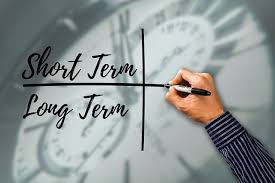Do you feel in control of your money, or does it seem hard to manage?
Simple personal finance strategies can help you save, spend wisely, and plan for the future. Budgeting, saving, and smart spending can make a big difference. Good money habits can lower stress and help you reach your goals.
Even small changes can help you build a better future. Whether you want to save more or prepare for retirement, these steps can make things easier. Learning how to manage money can give you more freedom.
Ready to get started? Keep reading!
Create a Budget
A budget helps you see how much money comes in and where it goes. Start by listing all income and necessary expenses like rent, food, and bills. Then, set limits for other spending to make sure you do not run out of money.
A good budget helps you stay on track and avoid spending too much. Adjust it as needed to fit your needs each month. Over time, this can make managing money easier.
If money problems become too hard to handle, finding the right help, such as debt relief in Houston, can be an important step toward better finances.
Save Before Spending
Putting money aside before spending helps build good habits. Choose a set amount from each paycheck and save it first. Treat it like a must-pay bill. Using automatic transfers can make saving easy since the money moves without thinking about it.
Even small amounts add up over time, making it easier to handle surprises or reach future goals. This habit keeps spending under control and reduces money stress.
Simple changes in how money is handled can make a big difference. Building smart habits now can lead to better financial choices in the future and help create a stronger money plan.
Build an Emergency Fund
Unexpected expenses can happen at any time, and having extra money set aside can make them easier to handle. Setting up an emergency fund helps cover sudden costs like car repairs, medical bills, or job loss.
Start small by saving a little each month until the fund grows. Keeping this money in a separate account ensures it is available when truly needed. Having an emergency fund can prevent the need to borrow money or use credit cards in tough times.
A strong financial plan includes preparing for the unexpected, making it easier to stay on track even during hard times. Taking small steps now can help create a safety net for the future and provide peace of mind when challenges arise.
Spend Wisely
Making smart choices with money helps avoid waste. Before buying something, ask if it is a need or a want. Checking prices and looking for deals can help money go further. Try to wait before making a big purchase to see if it is really needed.
Keeping track of spending can show where money is going and where to cut back. Small changes, like eating at home instead of at restaurants, can add up.
Choosing well-made items instead of cheaper ones that wear out fast can also help. Being careful with spending makes it easier to reach goals and find ways to save money without giving up too much.
Reduce Debt
Owing money can make it hard to reach financial goals. Paying off debt little by little can help lower stress and free up more money over time. Start by listing all debts and focusing on the ones with the highest interest.
Making more than the minimum payment can help clear balances faster. Avoiding new debt while paying off old balances is also important. Finding ways to cut extra costs can free up money to put toward payments.
Even small steps, like paying a little extra each month, can make a big difference. Reducing debt takes time, but staying on track can lead to more financial freedom and fewer money worries in the future.
Invest Early
Starting to invest as soon as possible can help grow wealth over time. Even small amounts put into investments can add up, thanks to compound growth. The earlier money is invested, the more time it has to increase in value.
Choosing low-risk options at first can make investing feel more secure. Spreading money across different types of investments can also help reduce risk. Regularly adding to investments, even in small amounts, can lead to steady growth.
Waiting too long to start can make it harder to build strong savings. Time is one of the most important factors in investing, so taking action early can lead to better financial results in the future.
Plan for Retirement
Thinking about the future now can make life easier later. Saving for retirement helps make sure there is enough money when working is no longer possible. Starting early gives savings more time to grow, but it is never too late to begin.
Different retirement plans can help based on income and goals. Adding money regularly, even small amounts, can add up over time. Changing savings as income grows can also help.
Planning ahead gives more choices and less stress in later years.
Use Credit Responsibly
Credit can be helpful, but it must be used wisely. Borrowing too much or missing payments can lead to money problems. Paying bills on time is important to keep a good credit score. Keeping balances low makes it easier to manage payments.
Only using credit for needed purchases helps avoid high debt. Checking statements often can catch mistakes and prevent overspending. Comparing credit card offers can help find lower interest rates and better terms.
Paying more than the minimum amount due each month can also reduce costs over time.
Keep Learning
Money rules and choices change over time, so staying informed is important. Reading books, taking classes, or following trusted sources can help improve financial decisions.
Learning about saving, investing, and smart spending can lead to better money management. Asking experts for advice can also provide useful guidance. The more knowledge gained, the easier it becomes to handle finances wisely.
Personal Finance Strategies Lead to a Stronger Future
Managing money well takes time and effort, but small steps can lead to big rewards. Creating good habits like saving, spending wisely, and reducing debt can improve financial stability.
Learning about smart money choices helps make better decisions for the future. Staying informed and planning ahead can provide more freedom and security. Personal finance strategies today can lead to a stronger financial future tomorrow.
Did you find this article helpful? You can check out our website for more awesome content like this.








Be First to Comment